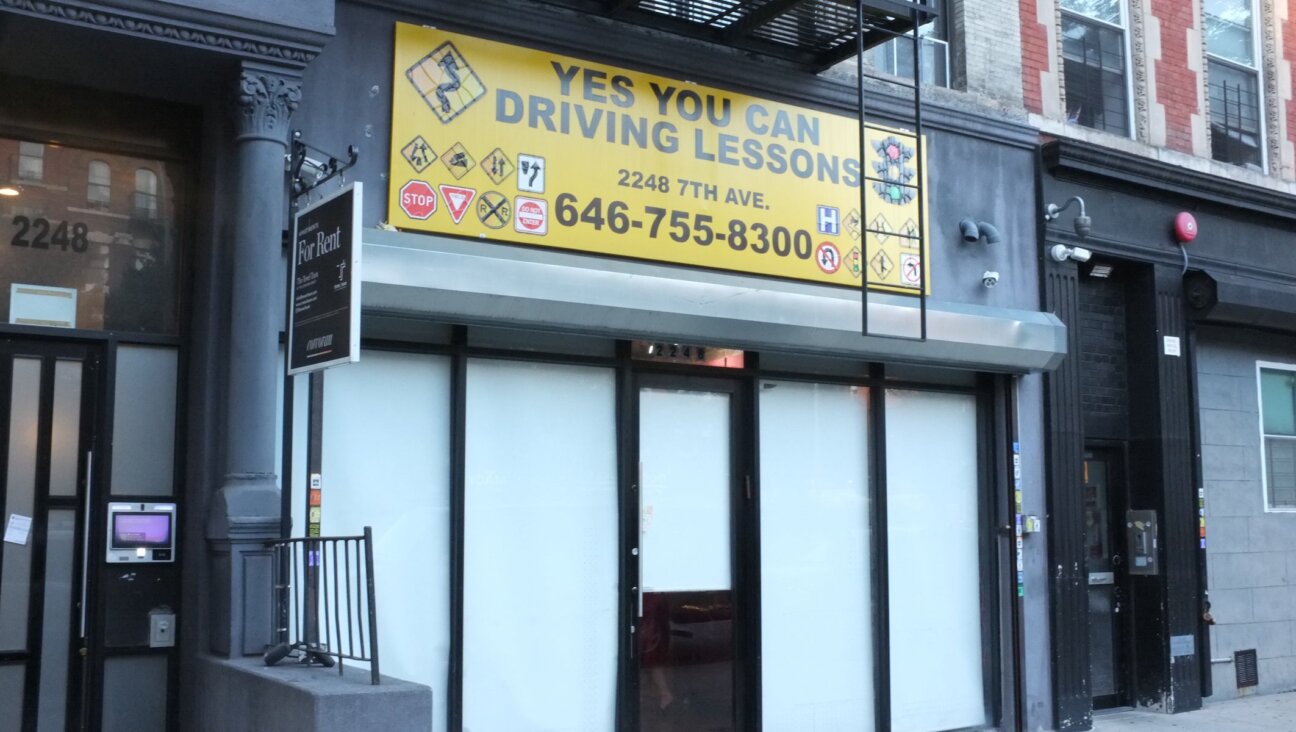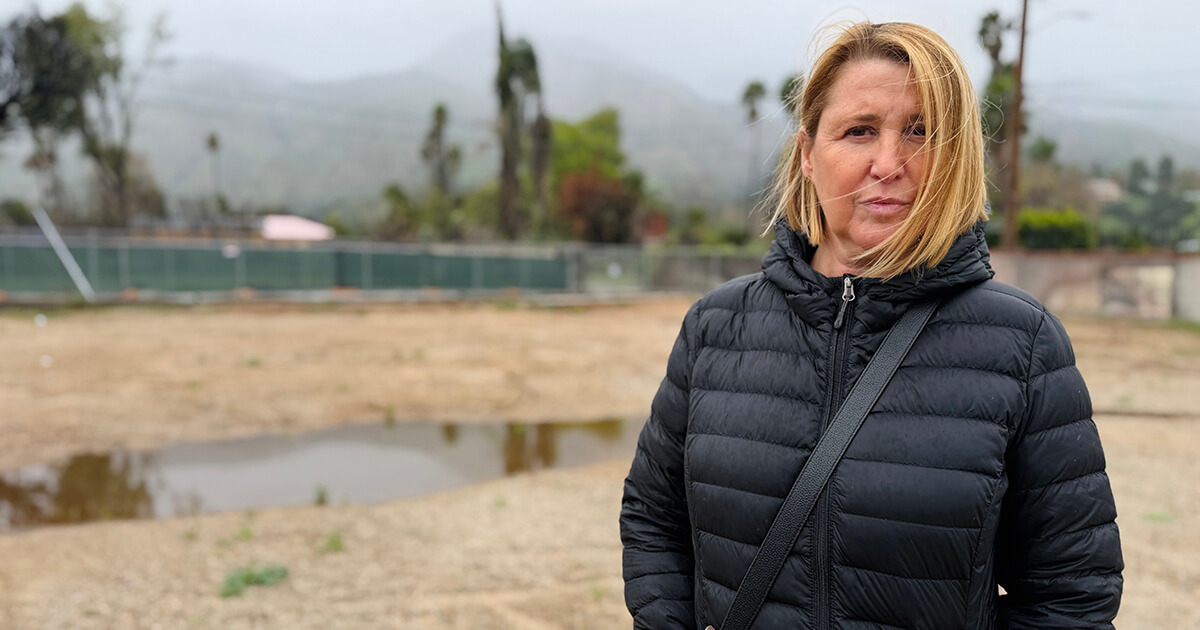Redistricting Reform Could Cause Trouble for Jewish Reps
Reformers are gaining ground in their push to change how America’s legislative districts are drawn, but their efforts could spell trouble for some Jewish lawmakers.
Urban Jewish members of Congress often represent the sort of strangely shaped, carefully gerrymandered districts that reformers would like to see eliminated. And many of these lawmakers are leaders on Capitol Hill when it comes to Israel and issues of Jewish concern.
“It is not good for Jews,” said Hank Sheinkopf, a New York Democratic political consultant, warning that redistricting reform efforts could “undo” Jewish power in Congress.
Two veteran Jewish Democrats already have received some bad news from California’s new independent redistricting commission, whose proposed congressional maps set the stage for a potential battle royal between Reps. Howard Berman and Brad Sherman, both pro-Israel stalwarts.
In Florida, voters approved redistricting reforms in 2010, and in New York there is a strong push to establish an independent commission.
Reformers want to end the practice of district lines being drawn for political advantage every 10 years, when new maps for congressional and state legislative districts are made. They hope to encourage competitive elections by taking redistricting authority away from state legislatures or by requiring that districts be more rationally drawn.
“They’re all drawn – always – to keep the incumbents in, and that’s just wrong in my book,” said former New York City Mayor Ed Koch, who chairs a group called New York Uprising that wants an independent redistricting commission for the state. “That means that the incumbents picked their voters instead of the voters picking their representatives.”
The California Citizens Redistricting Commission, which was established under a 2010 ballot initiative, released draft maps last month for the state’s new congressional districts.
In Los Angeles’ eastern San Fernando Valley, an area that is largely represented by Berman, the commission created a district with a strong Hispanic majority. Berman’s home, meanwhile, was placed into a western San Fernando Valley district that would contain a majority of Sherman’s current constituents and a much smaller fraction of Berman’s.
While the lines could still change by the time the commission issues its final maps in August, Berman has indicated that he would likely seek election in the western San Fernando Valley district, which is more white and Jewish. Sherman also has said he would run in that district, creating a scenario in which the House stands to lose either Berman, the House Foreign Affairs Committee’s ranking Democrat and former chairman, or Sherman, an outspoken advocate for Jewish causes who recently introduced federal legislation to protect circumcision from local campaigns to ban the practice.
In Florida, redistricting reform left the process in the state legislature’s hands but required that districts be drawn so that they are compact and utilize existing geographical and political boundaries. This could mean significant changes to Florida’s political map, particularly in the southern part of the state, where a mosaic of gerrymandered districts zigzag across city and county boundaries.
Rep. Debbie Wasserman Schultz, also the chairwoman of the Democratic National Committee, has a district that meanders through Broward County and then hugs the coast down into Miami-Dade County, leaping across Biscayne Bay to take in heavily Jewish northern Miami Beach.
Rep. Ted Deutch’s congressional district, which is believed to be the country’s most Jewish, is a jagged-edged amoeba with a curled tail sprawling across parts of Broward and Palm Beach counties.
Neither of these districts is consistent with the requirements of the state’s redistricting reforms, according to Robert Watson, a professor of American studies at Lynn University in Boca Raton, Fla.
Watson says that one reason these two districts are so heavily Jewish is that the Republican-controlled state legislature had previously packed in Democratic voters to give the GOP a shot at winning in neighboring congressional districts. That effort yielded fruits: In the 2010 elections, Republican Allen West unseated Jewish Democrat Ron Klein in a neighboring – and also strangely shaped – district.
Watson said the redistricting process likely will make the districts of Deutch and Wasserman Schultz districts less Jewish and less Democratic, and therefore at least somewhat less safe for them. However, he noted, the popularity of the two representatives would still make them tough to beat. Both Deutch and Wasserman Schultz supported Florida’s redistricting reforms, which were opposed by Florida Republicans.
Deutch, who was elected to Congress in 2010 and is an advocate on Jewish issues, told JTA that it remains uncertain how the reforms will affect his district. But he said that he believes his district as currently drawn reflects a “community of interest” – a term cited in state legislature materials as a relevant criterion for drawing lines but which did not appear in the text of the Florida redistricting reform amendments.
“In terms of representing real communities of interest, District 19 does that exceedingly well,” Deutch said. “In my case, I’m proud that the largest communities of interest that I represent happen to be the Jewish community, Holocaust survivors and one of the nation’s largest pro-Israel communities.”
In New York, Democratic Gov. Andrew Cuomo is calling for the establishment of an independent redistricting commission. While the politically divided state legislature has dragged its feet on reform, Cuomo has vowed to veto any maps not drawn up by an independent commission.
Koch, whose group has mobilized prominent New Yorkers behind reform, said that districts should be “compact as opposed to looking like a dinosaur.”
Yet some of New York’s most Jewish congressional districts are particularly odd shaped.
The district of Rep. Jerrold Nadler, a standard-bearer for Jewish progressives, stretches from Manhattan’s liberal Upper West Side down to Orthodox Jewish Borough Park and Russian Jewish Brighton Beach in Brooklyn.
The district of Rep. Eliot Engel, a longtime hard-liner on Israel, goes from the heavily Jewish Riverdale section of the Bronx into Westchester County and is connected via a narrow land bridge to upstate Orthodox strongholds such as Monsey and New Square.
The district until recently represented by Rep. Anthony Weiner winds between two boroughs, managing to take in both Brooklyn’s Sheepshead Bay and the Forest Hills section of Queens, two heavily Jewish but far-flung neighborhoods. Many expect this district to be eliminated, since New York is losing two congressional seats due to national population shifts certified by the U.S. Census and Weiner’s scandal-induced resignation means that the seat will have no longstanding incumbent.
Black and Hispanic members of Congress sometimes also represent elaborately drawn districts. But their districts’ racial and ethnic characters are often safeguarded under the federal Voting Rights Act. Heavily Jewish districts have no legal protections.
“The political form of reapportionment effectively acts as a Voting Rights Act protection for people who are not covered by the Voting Rights Act, ” Sheinkopf said.
He said that reapportionment commissions “ensure that groups that are not covered by the Voting Rights Act are splintered up.”
Current redistricting reform efforts, Sheinkopf said, would be an “absolute disaster” for urban Jews, diluting Jewish political power because Jews are now scattered in the suburbs as opposed to being concentrated in cities.
Indeed, Berman’s eastern San Fernando Valley turf has been trending increasingly Hispanic and less Jewish for many years. But Berman had benefited from a redistricting a decade ago that shifted some heavily Jewish neighborhoods into his district and some Hispanic areas into Sherman’s.
Koch, however, said that reform is more important than safeguarding Jewish seats.
“I’m more interested in good government than I am in the election of people on the basis of ethnicity,” he said.
Still, Koch added that the Jewish community should not fear redistricting reform, noting that Jews have been elected to political office in numbers disproportionate to their share of the American population.
“Overwhelmingly, the people of this country have been wonderful and elected people on the merits,” he said. “And so I would say on the merits is what Jews should strive for.”















